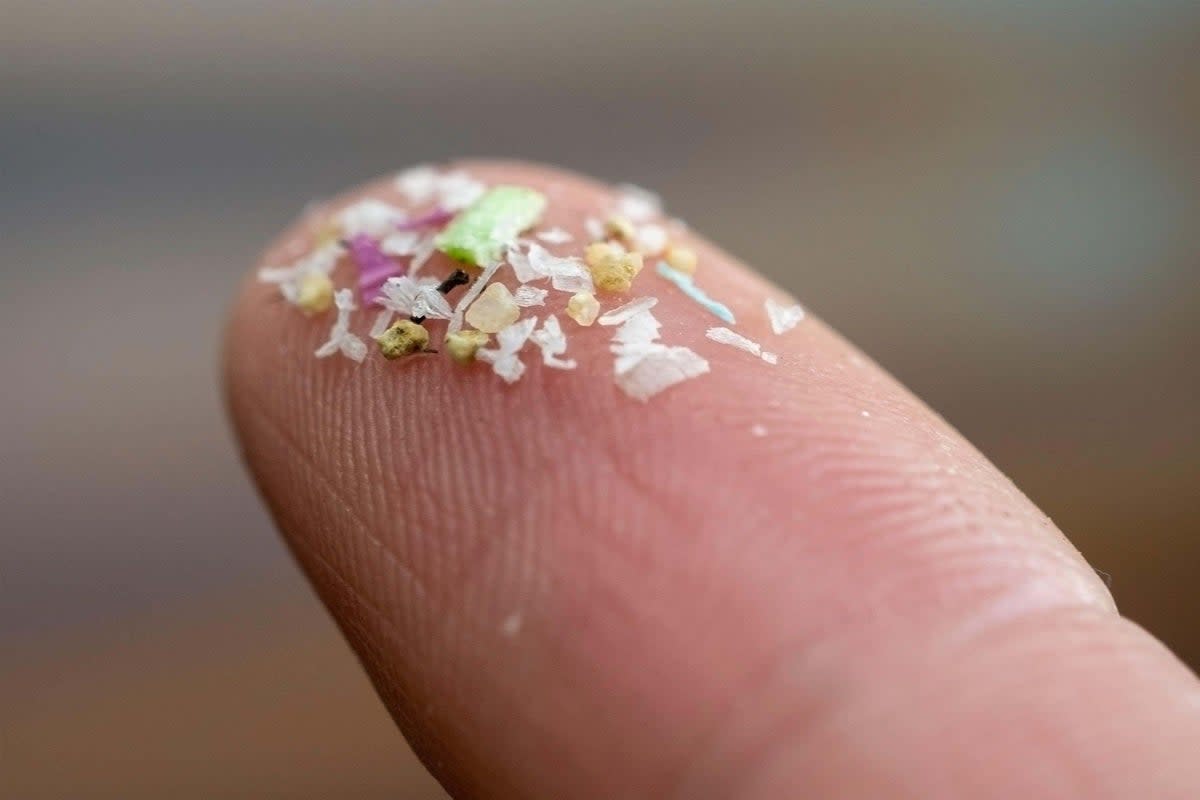Microplastics found in every semen sample in study

Microplastics have been found in all human semen samples tested in a study conducted in China, raising fears that exposure to the pollutant could be having an impact on male fertility.
Researchers at Qingdao University detected microplastics in all samples given by 40 healthy men undergoing premarital health assessments in Jinan, China.
Scientists discovered eight different plastics, including polystyrene and PVC, both of which are used in household items and packaging.
Microplastics are tiny, plastic fragments that are typically smaller than 5mm in length.
They originate from the breakdown of larger plastic items such as bottles and bags and the degradation of plastic packaging materials.
Researchers have previously discovered microplastics in some of the world’s most remote environments, including Mount Everest and the Mariana Trench.
Humans are exposed to microplastics through food, water and air. Once inside the bloodstream, microplastics can accumulate in different organs including the reproductive system.
The study’s authors wrote: “As emerging research increasingly implicates microplastic exposure as a potential factor impacting human health, understanding the extent of human contamination and its relation to reproductive outcomes is imperative.
“[Mouse studies] demonstrate a significant decrease in viable sperm count and an uptick in sperm deformities, indicating that microplastic exposure may pose a chronic, cumulative risk to male reproductive health.”
Results from another recent study conducted in Italy found microplastics in the semen of six out of 10 healthy young men in Italy.
Last year, a study conducted by the University of Hull found that microplastics can pass through blood vessels to vascular tissue - but scientists said it was not clear yet what the implications are for human health.
Previous research has shown that microplastics cause inflammation and stress responses on cells grown in dishes.
A major study published in 2017 found that sperm counts of Western men are in a “shocking” downward spiral, with a 59.3 per cent drop in the average amount of sperm produced by men from North America, Europe, Australia and New Zealand between 1973 and 2011.
The research, published by the Hebrew University of Jerusalem, said that one possible cause of the drop in sperm count could be environmental chemicals.
Earlier this year, European Union (EU) officials pushed to strengthen laws on microplastics pollution after millions of plastic pellets washed up on the coast of Spain's northwestern Galicia region.
The law would seek to curb spillages of pellets, 176,000 metric tons of which are accidentally released each year, according to the European Chemicals Agency.
The millions of pellets washed up in Spain came from at least one container that fell from a vessel off the coast of neighbouring Portugal.


